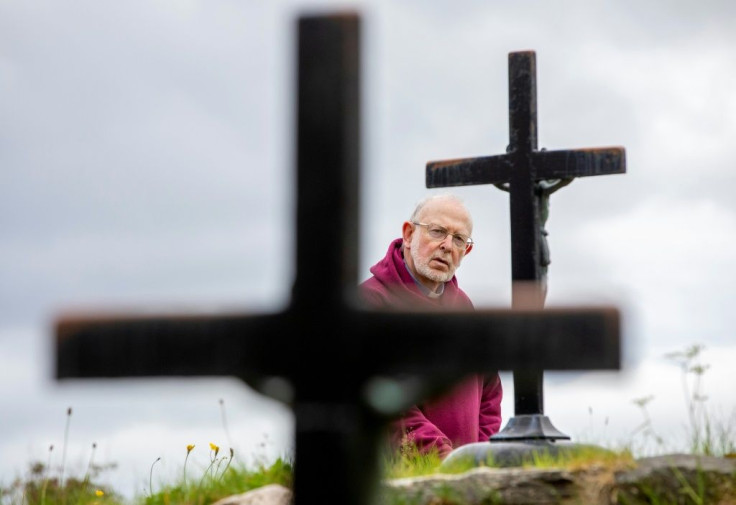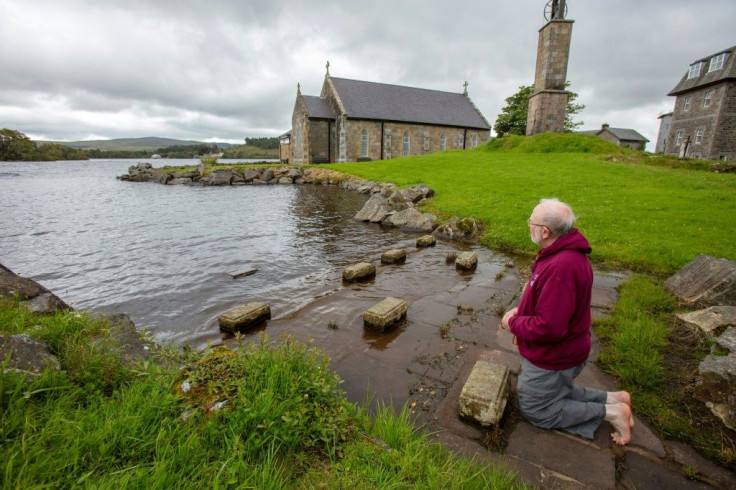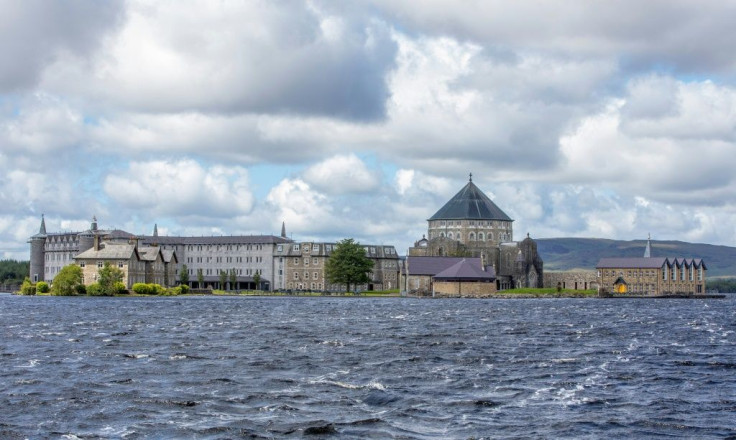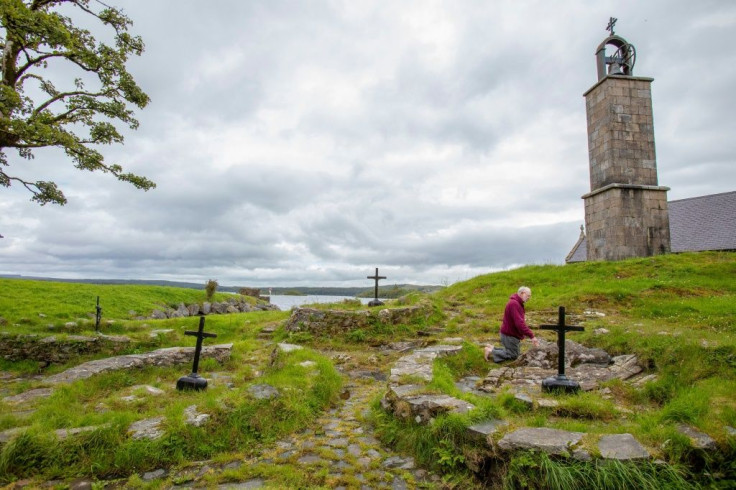Pandemic Purgatory: Irish Priest In Holy Island Virus Vigil
As people in Ireland endured months of coronavirus lockdown limbo, priest Laurence Flynn experienced his own private purgatory, keeping solitary vigil on a hallowed island usually crowded with pilgrims.
After the nation shut down in late March, Father Flynn became the sole inhabitant of St. Patrick's Purgatory on Lough Derg, a lake in County Donegal said to be where Christ showed Ireland's patron saint the entrance to hell.
Dating back to the fifth century, the holy site on Station Island is a place of Catholic pilgrimage where the faithful usually flock for three days of fasting, barefoot prayer and all-night vigils.

But the pandemic, which has killed 1,764 people in Ireland, has seen the summer pilgrimage season cancelled for the first time since 1828.
"I have made the choice to come here... as a little gesture of solidarity with those who don't have a choice about whether they stay in one place or whether they move more freely," said Flynn, 69, who has been on the island since June 1.
"In some humble way by performing one station prayer each day I keep the rhythm of the pilgrimage alive."

In any other year the strip of land in the choppy copper-coloured waters of Lough Derg would bustle with up to 400 pilgrims on any given day from June to August.
During an exacting three-day visit referred to as the "ironman of pilgrimages", they would be allowed one simple meal consisting of tea or coffee without milk, and dry bread, toast or oatcakes.
Pilgrims from around the world remain awake to hold a 24-hour vigil and perform nine-hour-long barefoot "station prayers".

Circling the "penitential prayer beds" -- the ruins of ancient monastic cells -- they walk and kneel rhythmically in the shadow of a bell tower on the site of the cave said to have been shown to St. Patrick in 445 AD.
Likely more of a pit or a well than a cave, the legend goes that St. Patrick saw the gates to hell.
"The monks used... to spend a vigil of 24 hours in this cave or in this shelter and this becomes in time the focus of the pilgrimage," explained Flynn.
"People who took on this entry to the other world and spent their 24 hours in the cave, would be guaranteed a place in heaven -- they would, so to speak, have their purgatory behind them."

This year the site's gender-segregated dorms sit empty.
But every morning Flynn walks outside, slips off his sandals and traces the pilgrim routes trodden by millions over the last 150 years.
"I bring with me the prayers of those who ask for prayer -- the prayers of those who would like to be here or who come every year but can't come in this particular year," he said.
Padding around the penitential beds in a dog collar and maroon hoodie, Flynn cuts a solitary figure.
"There can be very few priests that are more isolated than I am at this moment, but I don't feel isolated," he said. "I have not once been lonely in the time I've been here."
Elsewhere lockdown has been punishing, particularly among older people more vulnerable to the virus.
This month Irish charity Alone said the pandemic was increasing loneliness among the elderly, "which may have a negative effect on their physical and mental wellbeing."
Ireland has made significant steps towards reopening society since daily deaths peaked at 77 in April.
However, many businesses and offices remain shut and the country has seen record unemployment figures.
Earlier this month plans to ease the lockdown further were delayed by a surge of new cases -- pushing the country deeper into its own form of purgatory.
"It's not going to be like this forever but we don't know how long it is going to last -- that would be one link with purgatory," said Flynn of the nation's ordeal.
"Another would be that somehow or other, purgatory is a purification," he added in a lighter tone.
"This time has challenged us to look at what is of lasting value, what is real and enduring."
© Copyright AFP 2024. All rights reserved.





















